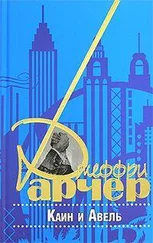After reading the article in the Financial Times , Sir William knew his days as Chairman were numbered. The resignation of Maurice Kington had been the final blow, from which he knew he couldn’t hope to recover. He had tried to talk him out of it, but there was only one person’s future Kington was ever interested in.
The Chairman stared down at his handwritten letter of resignation, a copy of which would be sent to every member of the board that evening.
His loyal secretary Claire had reminded him that he was fifty-seven, and had often talked of retiring at sixty to make way for a younger man. It was ironic when he considered who that younger man might be.
True, he was fifty-seven. But the last Chairman hadn’t retired until he was seventy, and that was what the board and the shareholders would remember. It would be forgotten that he had taken over an ailing bank from an ailing Chairman, and increased its profits year on year for the past decade. Even if you included the Russian disaster, they were still well ahead of the game.
Those hints from the Prime Minister that he was being considered for a peerage would quickly be forgotten. The dozen or so directorships that are nothing more than routine for the retiring Chairman of a major bank would suddenly evaporate, along with the invitations to Buck House, the Guildhall and the centre court at Wimbledon — the one official outing his wife always enjoyed.
He had told Katherine over dinner the night before that he was going to resign. She had put down her knife and fork, folded her napkin and said, ‘Thank God for that. Now it won’t be necessary to go on with this sham of a marriage any longer. I shall wait for a decent interval, of course, before I file for divorce.’ She had risen from her place and left the room without uttering another word.
Until then, he’d had no idea that Katherine felt so strongly. He’d assumed she was aware that there had been other women, although none of his affairs had been all that serious. He thought they had reached an understanding, an accommodation. After all, so many married couples of their age did. After dinner he had travelled up to London and spent the night at his club.
He unscrewed the top of his fountain pen and signed the twelve letters. He had left them on his desk all day, in the hope that before the close of business some miracle would occur which would make it possible for him to shred them. But in truth he knew that was never likely.
When he finally took the letters through to his secretary, she had already typed the recipients’ names on the twelve envelopes. He smiled at Claire, the best secretary he’d ever had.
‘Goodbye, Claire,’ he said, giving her a kiss on the cheek.
‘Goodbye, Sir William,’ she replied, biting her lip.
He returned to his office, picked up his empty briefcase and a copy of The Times . Tomorrow he would be the lead story in the Business Section — he wasn’t quite well enough known to make the front page. He looked around the Chairman’s office once again before leaving it for the last time. He closed the door quietly behind him and walked slowly down the corridor to the lift. He pressed the button and waited. The doors opened and he stepped inside, grateful that the lift was empty, and that it didn’t stop on its journey to the ground floor.
He walked out into the foyer and glanced towards the reception desk. Haskins would have gone home long ago. As the plate-glass door slid open he thought about Kevin sitting at home in Peckham with his pregnant wife. He would have liked to have wished him luck for the job on the reception desk. At least that wouldn’t be affected by the McKinsey report.
As he stepped out onto the pavement, something caught his eye. He turned to see an old tramp settling down for the night in the far corner underneath the arch.
Bill touched his forehead in a mock salute. ‘Good evening, Chairman,’ he said with a grin.
‘Good evening, Bill,’ Sir William replied, smiling back at him.
If only they could change places, Sir William thought, as he turned and walked towards his waiting car.





![Джеффри Арчер - The Short, the Long and the Tall [С иллюстрациями]](/books/388600/dzheffri-archer-the-short-the-long-and-the-tall-s-thumb.webp)






